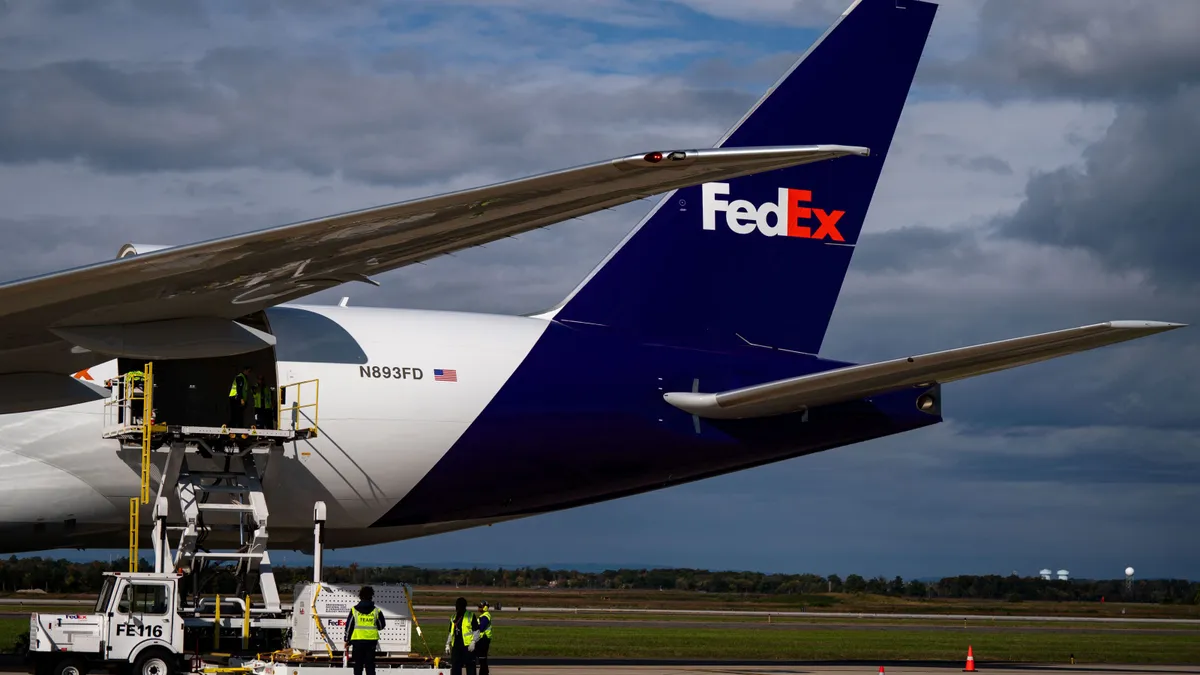Dive Brief:
- FedEx is levying a demand surcharge for parcel shipments from China, Hong Kong and the Philippines entering the U.S. starting Tuesday, according to a notice from the delivery giant.
- The fee, which ends May 2, is $0.45 per pound with a minimum charge of $1 for each shipment. FedEx previously instituted the surcharge on imports from those countries between September and January at a $1 per-pound rate.
- "FedEx continues to make adjustments within our network to best deliver for our customers," per the notice. UPS implemented a similar fee on Sunday, charging $0.29 per pound for shipments from China, Hong Kong and Macau going to the U.S., but it did not list an end date for that surcharge.
Dive Insight:
FedEx and UPS are reinstating China-to-U.S. surcharges as volatility on the trade lane persists. Many shippers are pushing to bring inventory into the U.S. earlier than normal as they seek to limit their exposure to tariffs installed by the Trump administration.
Many cross-border parcel shippers lean on the de minimis exemption, which enables shipments less than $800 to enter the U.S. duty free, to avoid added costs like tariffs. But the exemption will no longer apply to products from China and Hong Kong starting May 2, with other countries to follow once systems are in place to collect duty revenue.
On that date, FedEx will adjust the fees it charges for clearing de minimis-eligible imports through customs.
FedEx shipments imported into the U.S. with a customs value of $800 or less will begin seeing a Disbursement Fee of $4.50 or 2% of duty and tax, whichever is greater, per the company's service guide. The fee applies to its international package and express freight services.
If a shipper uses a third-party billing service in which duties and taxes are paid outside of the destination country, they will be charged a Duty and Tax Forwarding Fee instead. Through the surcharge, sub-$800 shipments will be charged the greater amount of $8.50 or 2% of duty and tax starting May 2.
The cost of both fees will remain unchanged for shipments of more than $800, according to the service guide.
FedEx rolled out the surcharge adjustments after executives expressed confidence in a March earnings call that the company's clearance capabilities were ready for any de minimis changes. EVP and Chief Customer Officer Brie Carere said FedEx was working with customers to help them navigate the market as well.
"Probably the largest impact would be customers coming out of the Asia market, and so from an operational perspective, we feel very ready to execute the necessary change," Carere said.
While de minimis shipments direct to consumers have helped fuel growth in a soft parcel market, the majority of FedEx's export volume remains linked to business-to-business shipments, EVP and CFO John Dietrich said on the call.













